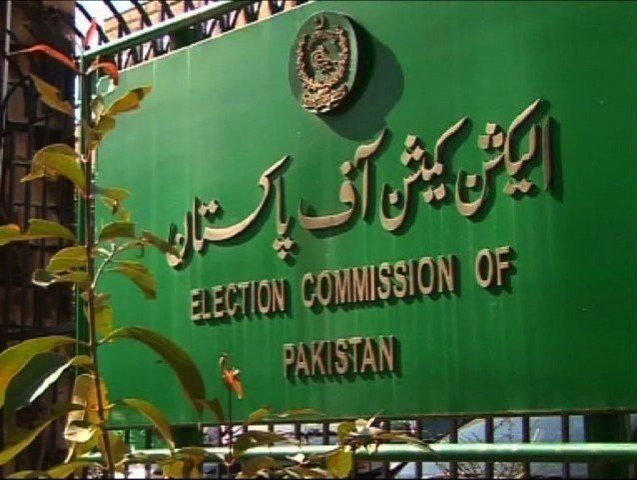Amendments to election bill unconstitutional: ECP
Says its suggestions were not taken up by relevant standing committee

The Election Commission of Pakistan (ECP) on Tuesday expressed reservations over the Elections Act (Amendment) Bill 2020, saying that some of the amendments in it are unconstitutional as its suggestions on them were not taken up by the relevant standing committee.
The ECP met under the chairmanship of Sikandar Sultan Raja to mull over the Elections (Amendment) Bill 2020.
The ECP said that the Ministry of IT audit stated that the National Database and Registration Authority’s (NADRA) i-voting system should not be used in the next general elections.
The Elections (Amendment) Bill 2020 was introduced in the National Assembly on October 16, 2020 and was cleared by the Standing Committee of the National Assembly on Parliamentary Affairs on June 8 amid the opposition’s protest.
The opposition members gave their dissenting notes on the bill and remarked that it was a sensitive issue that needed to be examined in depth and that the committee should refrain from passing it in haste.
Read more: ECP directs for completing ground for LB polls
Major changes proposed in the bill included more financial autonomy to the ECP; appeal to the Supreme Court by any aggrieved person on delimitation lists; provision to challenge appointment of polling officers/staff within 15 days of appointment; increase in nomination fee from Rs30,000 to Rs50,000 for National Assembly candidates and from Rs20,000 to Rs30,000 for provincial assembly candidates; vacation of seats of returned candidate if oath is not taken within 60 days of the first sitting of the assembly; polling for Senate elections under open ballot, voting right for overseas Pakistanis and use of electronic voting machines (EVMs) in elections.
Expressing apprehensions, the ECP observed that its suggestions on the amendments to the bill had not been discussed in the standing committee concerned.
The election supervisor said that it had already stated its position on the issue to the relevant standing committee through the Ministry of Parliamentary Affairs.
Declaring some of the amendments in the bill unconstitutional, the ECP said that the authority to prepare the electoral rolls and review them was one of its basic duties under Article 219 of the Constitution. It said that under Article 222, these powers could neither be abolished nor reduced.
The election commission pointed out that through the election amendment bill, these articles had been expunged due to which the process of review of electoral rolls would become impossible.
Under Section 17 of the proposed amendment bill, it had been suggested that the constituencies be demarcated on the basis of voters instead of population whereas under Article 51 of the Constitution, seats in the National Assembly are allocated on the basis of population.
The ECP said that the proposed amendment in Section 122 of the Elections Act 2017 to hold voting by open ballot instead of secret in the Senate elections was inconsistent with the opinion of the Supreme Court.
The meeting also mulled over the issues of i-voting for the overseas Pakistanis and EVMs.
The election commission said that the pilot project report of 2018 by-elections was presented in the parliament but no progress could be made on it.
It further said that the IT ministry carried out a third-party audit of the i-voting system developed by NADRA where shortcomings were identified and which needed to be overcome. The audit report recommended not to use i-voting system in the next general elections.
A model of the EVM developed by the Ministry of Science and Technology will be presented to the ECP at the end of July. Earlier, two international companies had given a demonstration of the EVMs to the election supervisor.



















COMMENTS
Comments are moderated and generally will be posted if they are on-topic and not abusive.
For more information, please see our Comments FAQ